Genres, Themes, Actors, and Directors:
- Biopic
- Candice Bergen Films
- Character Arc
- Folk Heroes
- Historical Drama
- India
- John Gielgud Films
- John Mills Films
- Martin Sheen Films
- Peacemakers
- Richard Attenborough Films
- Trevor Howard Films
Response to Peary’s Review:
As Peary notes in the beginning of his review, “the man in the loincloth would have been humbled by this epic treatment.” Director Richard Attenborough impressively manages to combine the sweeping magnitude of India’s history, landscapes, and people with a highly personal story — not an easy feat. Gandhi boasts stellar cinematography, a stirring film score by Ravi Shankar, and uniformly excellent acting. Ben Kingsley — portraying Gandhi as “thoughtful, dignified, [and] resolute, [with a] remarkable presence” — deservedly won an Oscar in his first major screen role, and is surrounded on all sides by highly competent co-stars (particularly Rohini Hattangadi as his long-suffering wife).
With that said, however, the film is not perfect. It paints an overly “saintly” picture of Gandhi, and neglects to discuss some of his more controversial stances. In addition, as with any historical film, countless details in Gandhi are inaccurate; viewers would be well-advised to do additional research before taking everything in the movie at face value. Nonetheless, Gandhi remains a truly powerful biopic, one of the finest ever made. Historical inaccuracies aside, it’s difficult not to be moved by the film’s sincerity, and by witnessing the premature, violent death of someone so committed to peaceful resolution.
Redeeming Qualities and Moments:
- Ben Kingsley’s truly remarkable performance — after watching him for three hours, it’s difficult to remember what the real Gandhi looked like
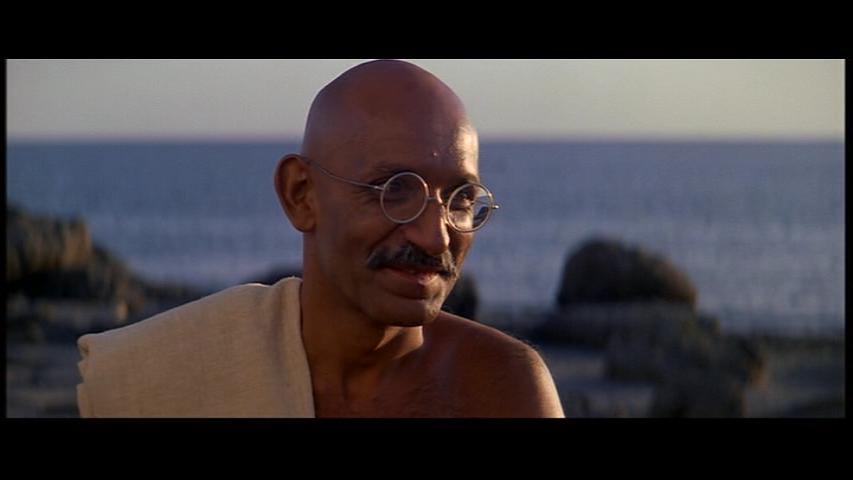
- Rohini Hattangadi as Gandhi’s devoted wife, who undergoes a similar shift in social awareness
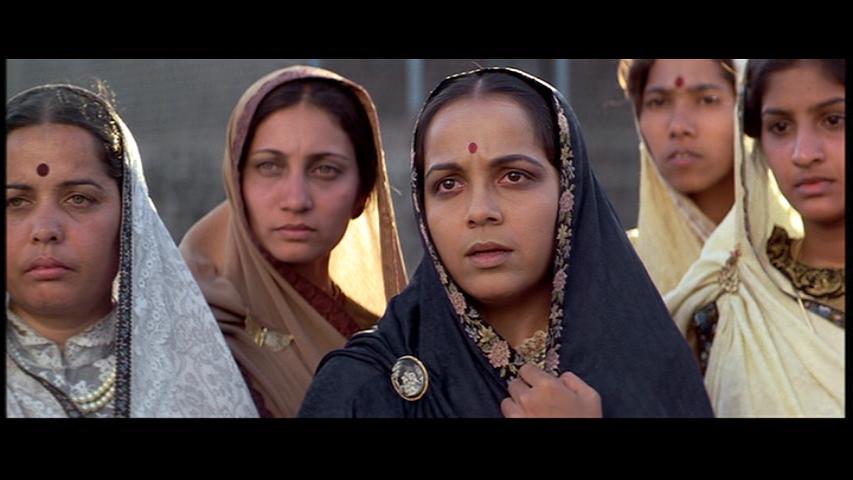
- Highly realistic crowd scenes with thousands of Indian extras
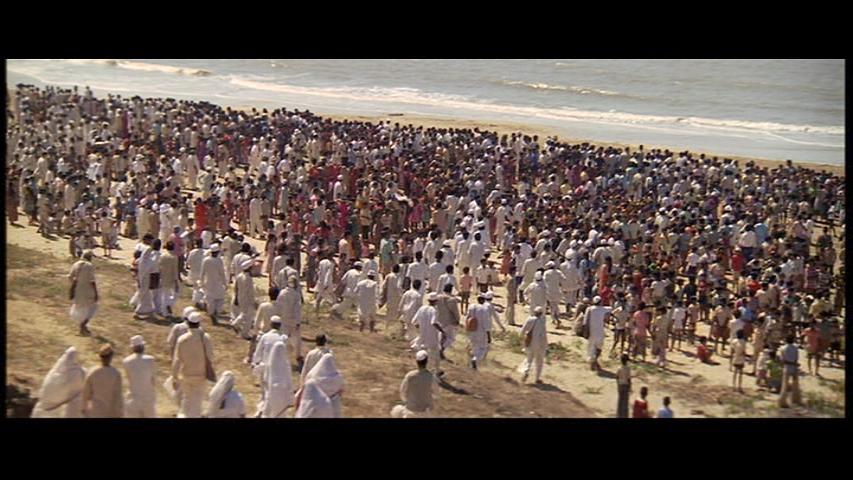
- A shockingly memorable scene showing protestors in South Africa (including women and children) being massacred by fellow Indians
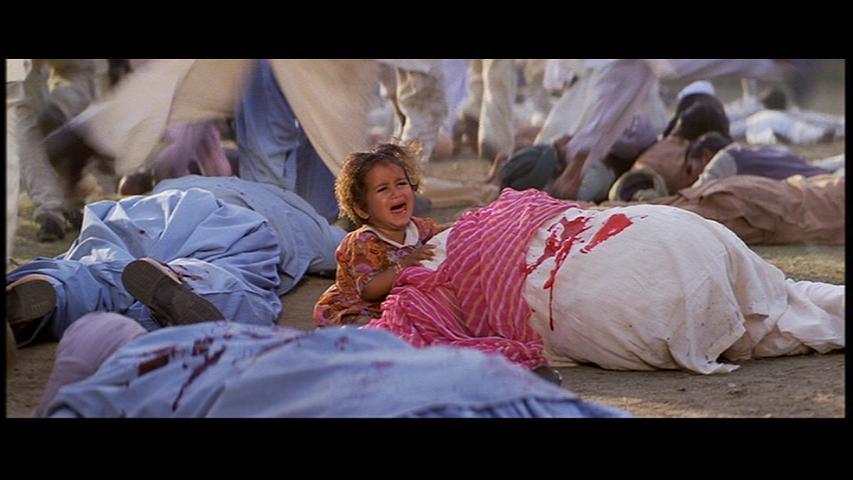
- Beautiful cinematography of Indian countryside

Must See?
Absolutely. This epic biopic should be required viewing for everyone, not just film fanatics.
Categories
- Historically Relevant
- Noteworthy Performance(s)
- Oscar Winner
(Listed in 1001 Movies You Must See Before You Die)
Links:
|
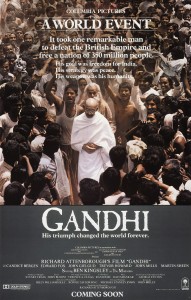





One thought on “Gandhi (1982)”
A must? Or not?
I suppose I’m going to have to take a rare divided stance. The article linked in the assessment makes a very compelling (and often fairly hilarious) argument against the film – as being almost a complete fraud. (Mr. Grenier sure has ‘ammunition’ at his fingertips.) Of course (as noted), most people know that the average biopic runs along the lines of fantasy. (Though, as my partner and I noticed last night, for all its horror and vulgarity, something like ‘Party Monster’ appears a reliable warts-and-all depiction, with emphasis on the warts.)
Elsewhere, we might not mind a faux-bio. Reportedly, Cole Porter himself was endlessly amused by the gay-free portrait of him in ‘Night and Day’.
But particularly when a film is made about a high-profile (apparently marginally spiritual, though believed to be more so) figure such as Gandhi, those-in-the-know can be forgiven for feeling a deep sense of betrayal. When is a movie not ‘just a movie’? Who likes being served ‘truth’ as camouflage on the grandest of scales?
And ‘Gandhi’ is both grand and of more-than-considerable scale. The less you know about Gandhi himself, the more you are likely to praise the Oscar voters for ‘getting it right’ in 1982 by practically sweep-awarding this film for its majesty. The other best pic nominees that year (‘E.T.’, ‘Missing’, ‘Tootsie’ and ‘The Verdict’) couldn’t, in a sense, touch it. Although Attenborough was awarded as well for directing, one is very much taken with this project as a full-team effort; everyone down the line is working at the top of his game. (This is not always an aspect of a film that commands my attention, for example, but the editing in this film is particularly superb.) The film is so inspiring, in fact, one is almost ashamed afterwards for resisting the urge to dress down to a loincloth, pick up a walking stick and take to the streets for the purpose of social change. Until, that is, you remember (or discover) the amount of fairy tale you’ve just watched.
Which, in the end, is what makes it difficult to post here point-by-point on this film – except (aside from the snippets that ring true) as fiction.
So, is it a must? Well, yeah, it’s a great epic of a movie, beautifully handled in all of its surface detail, with a pitch-perfect cast, and there’s not a lull to be found; it’s a swiftly moving 3 1/4 hours. But, depending on how much is really to be believed within (apparently a huge question mark here), you may just want to steer clear.